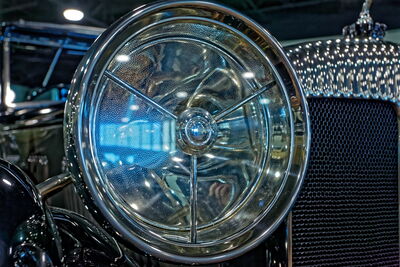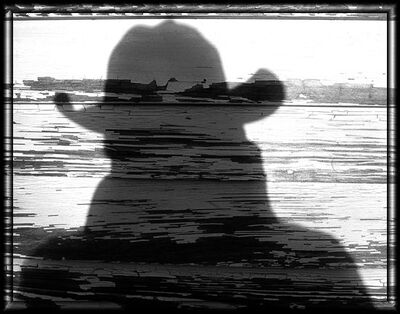Question: Crop Versus Full Sensors
Feb 12, 2017 08:25:55 #
Just curious. I read what seems to be conflicting information about crop and full sensors. I get it that full size sensors would give "better" photos, but as I understand it, it's because of both the number and size of the pixels. But is there a point of diminishing returns? I read that small, although more numerous pixels (ie. 24MB) would produce more noise and possibly less sharpness than a full size sensor with the same 24MB pixels. So where is the balance point, at which a crop sensor would give the same level of noise and sharpness as a full size sensor. If this makes no sense to anyone but me, I'll completely understand! But is this the reason that Nikon (for example) came out with a new camera, but with fewer total pixels than some older models? What is the advantage of more pixels over less? This whole thing is confusing to us non-techies who are trying to get it.
Feb 12, 2017 08:59:12 #
General rule:
Smaller sensor, higher density pixels = smaller photocell = less light capture = more noise.
Ie crop sensor, smartphone sensor, Point and Shoot sensor...
However....
Sensor design in the newer high end FF (5DMkIV, 810, A7Rii etc) have high mpix and still excellent low noise at higher ISO.
One of the main reasons why pros use FF cameras. Low light performance !
Outdoors, high frames per second is more coveted for sports, birding etc Cameras are now coming out that can do both in the 3-4k price range vs 7k needed to get both in the past.
Smaller sensor, higher density pixels = smaller photocell = less light capture = more noise.
Ie crop sensor, smartphone sensor, Point and Shoot sensor...
However....
Sensor design in the newer high end FF (5DMkIV, 810, A7Rii etc) have high mpix and still excellent low noise at higher ISO.
One of the main reasons why pros use FF cameras. Low light performance !
Outdoors, high frames per second is more coveted for sports, birding etc Cameras are now coming out that can do both in the 3-4k price range vs 7k needed to get both in the past.
Feb 12, 2017 09:26:53 #
Brayyd - Where is the balance point? Camera manufacturers wrestle with that design question every single day. And yet there remains no final answer. Both crop sensor and full frame cameras continue to improve. Crop sensor camera performance (arguably) exceeds that of full frame for some wildlife, action and sports scenarios. Read reviews of current crop sensor cameras like, for example, Nikon's D500 or Canon's 7D MkII if you don't believe me. The truth is that both formats can and will continue to co-exist. Regards, Ralph
Feb 12, 2017 09:35:29 #
Brayyd wrote:
Just curious. I read what seems to be conflicting ... (show quote)
I see nothing confusing. More pixels give you more details but more noise (for the same size sensor) and more of a burden for the camera processing power. Also with more pixels the lens has to be able to resolve more details for the sensor to capture. You ask for a point where the crop sensor has the same noise level and sharpness as the full? There is not a balance point. In fact to do that someone has to offset the balance by inventing a type of sensor only used for crop that perform better for its size.
Feb 12, 2017 16:43:11 #
Frankly I don't now care or have I ever cared just which is better -- Crop vs Full Frame ----
Remember just why the Crop Sensor came out in the 1st place --- There was a time when film was king when all SLR's were 24x35 that is full frame -- Then digital came along with what we call the crop frame/sub frame -- The reasoning was simple apparently pure silicon or pure enough was very expensive & the camera manufactures were real sure we armatures would not buy them -- I could be wrong but my memory has Canon back in 2002/2003 offering a full frame DSLR with 16million pixels @ $16,000 --- At which time I continued to purchase more Lenses & continued to use my film EOS 3 camera ----- I did not go digital until 2008/2009 when Canon came out with the 5D MkII a full frame @ an almost reasonable price with 21million pixels ---- I held off all that time so I could maintain the angle of view all my lenses provided with a full frame camera
Remember just why the Crop Sensor came out in the 1st place --- There was a time when film was king when all SLR's were 24x35 that is full frame -- Then digital came along with what we call the crop frame/sub frame -- The reasoning was simple apparently pure silicon or pure enough was very expensive & the camera manufactures were real sure we armatures would not buy them -- I could be wrong but my memory has Canon back in 2002/2003 offering a full frame DSLR with 16million pixels @ $16,000 --- At which time I continued to purchase more Lenses & continued to use my film EOS 3 camera ----- I did not go digital until 2008/2009 when Canon came out with the 5D MkII a full frame @ an almost reasonable price with 21million pixels ---- I held off all that time so I could maintain the angle of view all my lenses provided with a full frame camera
Feb 12, 2017 16:53:14 #
It's hard to say what the balance point would be as each new camera line usually comes with new processors. As they find ways to reduce noise and maintain sensitivity we will see higher pixel counts. Probably the main reason for top of the line cameras sometimes having lower pixel counts is to boost the shooting speed. The Nikon D500 shoots at 10 FPS, the D5 is a little higher. Those files go into a buffer which has a limited size, then need to transfer to the card. All these things have limited capabilities and larger files are more limiting.
--
--
Feb 12, 2017 17:09:01 #
What's your skill level? Leave the ff to pros, avid enthusiasts, or those with deep pocketbooks who just want to brag.
Feb 12, 2017 19:50:22 #
Cdouthitt wrote:
What's your skill level? Leave the ff to pros, avid enthusiasts, or those with deep pocketbooks who just want to brag.
Why a beginner shouldn't start with a FF?
Feb 12, 2017 19:51:14 #
ken_stern wrote:
...There was a time when film was king when all SLR's were 24x35 that is full frame -- ......
Not all. My Mamiya RB 67 is an SLR and the negative size on that is 6 x 7... centimeters. A lot bigger than the "full-frame" 24x36mm. There were also Pentax, Fuji, Rollei, Bronica and... Hasselblad SLR's among others. Graflex even had 4x5 inch SLRs. I believe Olympus made some 1/2 frame 35mm SLR cameras as well.
Feb 12, 2017 20:12:39 #
Cdouthitt wrote:
What's your skill level? Leave the ff to pros, avid enthusiasts, or those with deep pocketbooks who just want to brag.
I have a friend who is a pro and, as you know, he shoots Olympus m4/3 for most of his work assignments.
Feb 12, 2017 20:29:51 #
I don't think the sensor size has anything to do with sharpness. I think the omission of the anti-aliasing filter in many new cameras does produce a slightly sharper images. I did some test photos with my cropped sensor D500 (no AA filter) and a full frame D750 (has AA filter). The D500 clearly produced sharper images than the D750. Care was taken to process the photos the same way for consistency.
You mentioned that Nikon came out with a new camera, but with fewer total pixels than some older models. That is the case with the 20.9 megapixel D500. The number of pixels was reduced so the camera could shoot at 10 frames per second. If it was a 24 megapixel camera it may only be able to shoot at 6 or 7 frames per second since the image file sizes are larger.
You mentioned that Nikon came out with a new camera, but with fewer total pixels than some older models. That is the case with the 20.9 megapixel D500. The number of pixels was reduced so the camera could shoot at 10 frames per second. If it was a 24 megapixel camera it may only be able to shoot at 6 or 7 frames per second since the image file sizes are larger.
Feb 12, 2017 20:34:25 #
BebuLamar wrote:
Why a beginner shouldn't start with a FF?
They can...but it's usually those types with deep pocketbooks that just want to brag or compensate for something else.
Feb 12, 2017 20:41:58 #
It seems there are more people complaining about people bragging than there are people bragging.
What I find funny is the difference between here and a woodworking forum I belong to. If somebody mentions they are going to buy a $200 Bosch drill, the overwhelming response is something like, "for just another $200 you can get a Festool". Others may chime in that if they could afford it they would get one, or "maybe someday". Never any jealousy. I guess woodworkers are more secure than photographers.
--
What I find funny is the difference between here and a woodworking forum I belong to. If somebody mentions they are going to buy a $200 Bosch drill, the overwhelming response is something like, "for just another $200 you can get a Festool". Others may chime in that if they could afford it they would get one, or "maybe someday". Never any jealousy. I guess woodworkers are more secure than photographers.

--
Feb 12, 2017 21:06:33 #
Cdouthitt wrote:
They can...but it's usually those types with deep pocketbooks that just want to brag or compensate for something else.
I have problem with the idea that a beginner shouldn't start with high end equipment but rather must progress from one to another. To me if you don't have much money then you have to make do with whatever you can afford. If you have the money the higher end the equipment the easier it is for you to learn.
Feb 12, 2017 21:16:30 #
Brayyd wrote:
Just curious. I read what seems to be conflicting ... (show quote)
I am not so sure about the sharpness aspect of your statement, the reason people tend to use crop cameras for birding and sports is that the high pixel density will result in higher resolution. Noise is a problem on crop cameras and so can be color depth when compared to a full frame.
If you want to reply, then register here. Registration is free and your account is created instantly, so you can post right away.









